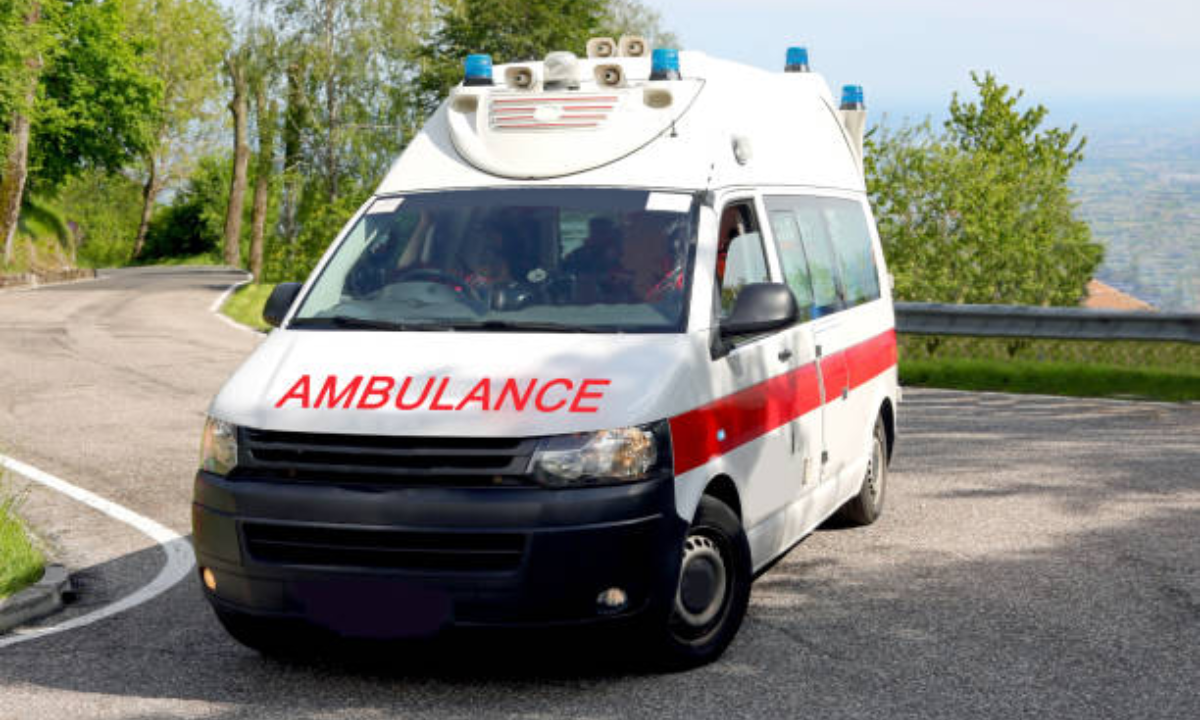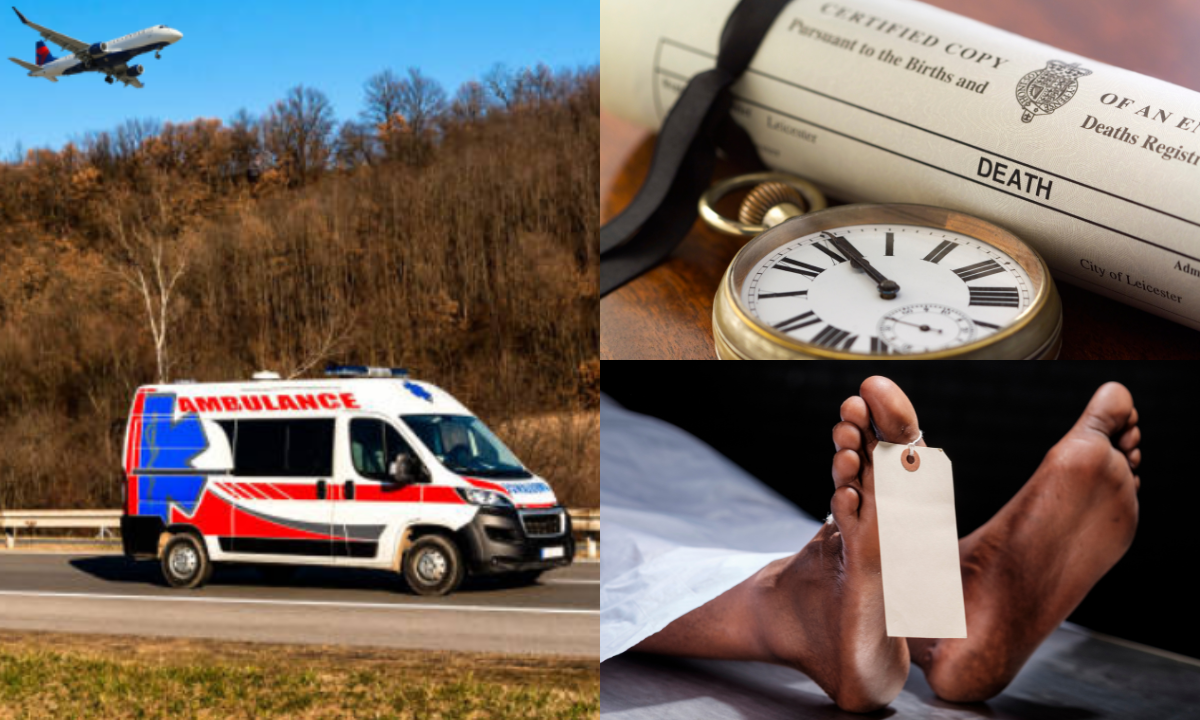When a loved one passes away, away from home, the question of how to transport a body safely often adds to the emotional weight of loss. Families want to ensure that their loved one’s final journey is handled with dignity, care, and the right process.
Dead body transportation is not just a procedure; it’s a responsibility that requires compassion, proper documentation, and professional handling.
In this guide, we will walk you through the essential steps, documents, and best practices for interstate body transfer. And toward the end, you will learn how our Dead body transportation services in India make this process seamless, lawful, and respectful.
Understanding the Process of Body Transportation
When we talk about transporting a body after death, it can be due to many reasons, such as returning the deceased to their hometown, fulfilling a last wish, or conducting final rites near family. The process involves clear steps, including obtaining permissions, ensuring safe preservation, and choosing the right mode of transport.
Here’s a quick overview to understand the journey in simple terms:
| Step | Description |
|---|---|
| 1. Death Certificate | Issued by the hospital or the registrar at the local municipal office. |
| 2. Police NOC | Required, especially if the death occurred outside the home or in another city. |
| 3. Embalming Certificate | Ensures safe preservation of the body for long-distance travel. |
| 4. Coffin Sealing Certificate | Issued by a medical or health officer to confirm the coffin is sealed hygienically. |
| 5. Booking the Transport | The body can be moved through the air or by road, depending on distance and circumstances. |
Each of these steps is important for a smooth and lawful transfer across state lines.
Different Modes of Transporting a Body Across States
Families generally choose between two main modes of dead body transportation, by air or by road. Both methods are safe and recognised by authorities, depending on the distance and urgency.
1. Dead Body Ambulance (For Road Transport)

For shorter or medium distances, dead body ambulance services are the most commonly chosen method. These ambulances are designed for this purpose, ensuring hygiene, safety, and dignity. Many come equipped with air-conditioning or a freezer box to preserve the body throughout the journey.
Family members can accompany the body, which offers comfort and reassurance during this difficult time. Professional drivers trained in such sensitive transfers handle the entire process carefully, ensuring the journey is smooth and timely.
2. Dead Body Transport by Air Within India
For long distances or interstate transfers, dead body transport by air within India is the fastest and most efficient option.
Airlines follow strict procedures to ensure the process is respectful and compliant with health regulations. Before you transport a dead body on a plane, certain documents and preservation steps are mandatory.
| Requirement | Details |
|---|---|
| Embalming Certificate | Issued by a registered embalming centre after the preservation process. |
| Coffin Sealing Certificate | Provided by the local health officer once the coffin is sealed properly. |
| Death Certificate | Original and photocopies needed for airline verification. |
| Photo ID Proofs | For both the deceased and the next of kin. |
| Booking Confirmation | Arranged through the airline’s cargo department. |
It’s advisable to coordinate with the airline in advance. Most airlines have dedicated teams for such cases and guide families through the procedure step by step.
Essential Documents for Dead Body Transfer
Documentation ensures that the dead body transfer process follows all legal and safety norms. Keeping these documents ready in advance saves precious time during coordination.
- Original Death Certificate from the hospital or the municipal office.
- Embalming Certificate from a recognised embalmer
- Coffin Sealing Certificate from the health officer
- Police NOC (especially for interstate transfers)
- Photo ID proof of both the deceased and the next of kin
- Travel booking confirmation (for air or ambulance)
Each document plays an essential role in verifying the process and maintaining transparency.
Tips for Safe and Respectful Body Transportation
Having helped many families navigate this sensitive process, we recommend these practical tips to ensure everything goes smoothly:
- Contact professional services early. It reduces confusion and ensures timely coordination.
- Keep multiple copies of all documents. Authorities may ask for verification at different points.
- Use embalming for air travel. It’s mandatory and ensures safe preservation.
- Choose a freezer box for long road journeys. It maintains hygiene and prevents deterioration.
- Verify sealing before departure. Each state may have its own sealing standards and documentation requirements.
Why Embalming and Freezer Boxes Are Important
Both embalming and freezer boxes play vital roles in ensuring the body remains preserved during transport.
- Embalming is the process of treating the body with preservatives to prevent decomposition. It’s essential when transporting by air or over long distances.
- Freezer boxes, on the other hand, are cooling units that maintain the body at a safe temperature, often used during road transfers or short holding periods before cremation.
Choosing the right method depends on the duration of transport and weather conditions.
How Professional Assistance Simplifies Everything
During times of loss, handling paperwork, permissions, and coordination can feel overwhelming. This is where our dead body transportation services in India bring comfort and clarity. Our professional teams take care of every step: documentation, embalming, coffin sealing, and liaison with airlines or ambulance providers.
They also ensure legal compliance and respectful handling of the deceased at every stage. Families are relieved of stress, knowing that every detail is being taken care of with sensitivity and respect.
Common Challenges Families Face
Even with the right information, families often encounter:
- Delays in document approvals
- Confusion about airline or local regulations
- Limited access to embalming facilities in smaller towns
- Coordination issues between multiple authorities
Professional services act as a bridge, managing communication with officials, hospitals, and transport partners to ensure a smooth experience.
Final Thoughts
To transport a body safely across states, one needs careful planning, proper documentation, and professional guidance. From embalming to coordination with airlines or ambulances, every step must be handled with compassion and precision.
That’s why reliable dead body transportation services in India are invaluable; we ensure your loved one’s journey is managed with dignity, care, and respect.
At Kaashimukthi, we understand how emotional this time can be. Our dedicated team takes care of every detail, ensuring a smooth and dignified process for your loved one’s final journey home.
Frequently Asked Questions
1. How Long Does It Take To Transport A Body Across States?
Depending on distance and document readiness, the process usually takes several hours to a day, including embalming, approvals, and final travel coordination.
2. Is Embalming Mandatory For Transporting A Body By Air?
Yes. All airlines in India require embalming before accepting a body for transport, ensuring preservation, hygiene, and safety throughout the journey.
3. Can Family Members Travel With The Body On The Same Flight?
Yes, one or two family members can travel on the same flight by booking seats separately, while the body travels in the cargo section.
4. Who Provides The Required Certificates For Transportation?
Hospitals issue the death certificate, police give the NOC, and licensed embalmers and health officers issue embalming and coffin sealing certificates.
5. How Do Professional Services Assist Families During This Process?
They handle documentation, embalming, coffin sealing, and coordination with airlines or ambulances, ensuring a respectful and stress-free process for the family.

Madhu is an Entrepreneur, a Mentor, a Writer and an Aspiring Car Race Driver. He is Deeply passionate about leveraging Technology and Human Centred Design to make complex care and End of Life Planning easier. With the ultimate aim of Improving the quality of Life in the Twilight years. Madhu is highly educated and Alumni of IIM-Bangalore, Sikkim Manipal University and Bangalore University besides a Rich Industry Experience in the field of Product Management, Design, Supply chain, Finance, Commercial Management and Funeral Services.

